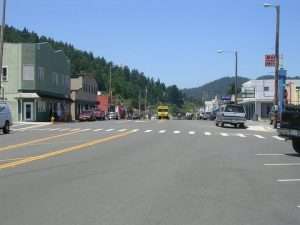I was searching for Seamus Heaney’s poem, Servant Boy. It was the poem from which the Heaney volume of poem’s Wintering Out took its name. The opening lines seemed to capture the mood last year:
He is wintering out
the back-end of a bad year,
swinging a hurricane-lamp
through some outhouse
After Wintering Out was published in 1972, a comment from Seamus Heaney on that violent and turbulent year was reported in the Cork Examiner, “If we winter this one out, we can summer anywhere.” It was a comment that became a meme as Ireland locked down in the spring of 2020. It was not hard to imagine the deep, distinctive tones of Seamus Heaney reading the words of Servant Boy.
However, it was not Heaney’s voice that came to mind as I flicked through the pages of Wintering Out. Instead, it was the poem The Wool Trade that recalled a distinctive voice.
In October 1979, there was a Freshers’ Week talk given by an academic at the LSE. Welcoming the new undergraduates who were assembled in the lecture theatre, he spoke of how much more interesting university had become since he had been an undergraduate himself. “Even the lectures have improved,” he laughed.
Assuming the flattest, dullest voice he could manage, he spoke about the first encounter of his cohort with a lecturer in economic history. “The wool trade in 1400,” he said in very dull tones. “This wasn’t the title of the course, nor was it the title of the lecture, this was the first line of the lecture – and it continued like that throughout the course.”
Tones of voice can transform the most inoffensive remarks into sources of annoyance. Those who call the 1990s Channel 4 television series Father Ted may recall the character of Fr Paul Stone.
Father Paul Stone is thought by Ted to be the most boring priest in the world. Entirely monotone, Fr Paul Stone’s saving grace is that he says very little. “Yes,” “no,” “I suppose so,” are generally the full extent of his comments. Every year, he comes to Craggy Island for his holidays and sits in the parochial house exuding an impenetrable dullness. Ted dreads Fr Stone’s visits, the stony silences that fill the room, only to be broken by the dullest of voices.
Why does tone of voice make such a difference to the perception of words? It would not be hard to imagine that Heaney could have read from the phone book and made it sound interesting. On the other hand, Fr Paul Stone would have reduced Heaney to soporific sounds.


